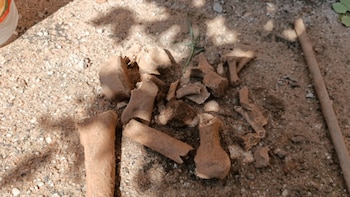
(ATR) The security challenges of staging the Rio 2016 Olympics and a World Cup in Brazil were among the topics of debate on the final day of Securing Sport in Doha.
Security issues around Russia’s 2018 World Cup were also in the spotlight along with a session on the risks associated with the internationalization of betting.
Jorge Barbosa Pontes, Rio 2016’s security international relations manager, told delegates that the success of security planning and staging of the 2007 Pan American Games helped Rio secure the Olympics.
With the Olympics a more complex event, cooperation among the ministries of justice, defense and Interpol had led to good planning at city, state and federal levels.
Security guidelines were being drawn up for the Olympic torch relay and Games competitions in the different zones.
"We are working on creating perception of a safe host city environment. The favelas are known all over the world. Soon we’ll be able to say we used to have this problem," he said, adding that the police had done outstanding work to crack down on the drug warfare and slum violence that’s marred the city’s image.
"It’s really a transformation… the concept of favela is being replaced by community. Of course drug trafficking is not erased 100 percent… but little by little we are taking back very important space."
At Rio 2016, thousands of police would be backed by security cameras throughout the metro region.
Changes in Russian football security planning spurred by the country winning 2018 World Cup hosting rights also formed part of discussions. The panel, which includedSergey Pryadkin, president of the Russian Premier League, and its security director Alexander Meytin, explained how Vladimir Putin’s government had introduced new legislation to crack down on match-fixers and fan violence.
Preparations for the Sochi 2014 Olympics were helping to drive forward new thinking on security under a new strategy running from 2013 to 2020, he noted.
Former FIFA security chief Chris Eaton, now director of sport integrity at the ICSS, spoke in the session on betting. The panel discussion centered on how sports event stakeholders and federations can collaborate to stop the infiltration of international crime.
To prevent corruption, federations had to engage with and educate players and officials about the rights and wrongs of betting.
Friedrich Stickler, president of The European Lotteries, said suspicious betting patterns were hard to detect because the criminals were using more sophisticated methods to avoid being caught.
He called for sports authorities to work more closely with betting operators and regulators. Both European law agency Europol and its international counterpart Interpol have investigated hundreds of football matches in recent years amid allegations of suspicious betting.
Stickler noted the threat posed by Far East criminal syndicates to the reputation of the UEFA Champions League, Europe’s prestigious club competition. He claimed the problems were partly explained by lack of regulation in some Asian countries compared to Europe.
Eaton said the aim was to protect sport and its stakeholders, some of whom were not equipped enough to combat illegal betting and match-fixing.
He said the ICSS was seeking to fill the gap until mechanisms were in place to help sports federations. Eaton added that the advisory board was "very committed" to give sport all the tools necessary.
A new quarterly bulletin will soon be launched and sent out to all sporting federations to achieve these aims.
Reported byMark Bisson
20 Years at #1: Your best source of news about the Olympics is AroundTheRings.com, for subscribers only.
Últimas Noticias
“Project Merciless”: Qatar’s plan to spy on top FIFA leaders and ensure the organization of the 2022 World Cup
An investigation reveals that more than 380 million dollars were spent to hack personalities. The spies violated email accounts, computers, phones and investigated friends and family of world football leaders and advisors.

2021 Esports business summit planned for Las Vegas - conferences & conventions

Sportaccord delegation visits ekaterinburg - conferences & conventions

Fifa adds hisense for 2022 world Cup - sponsor spotlight

Fifa boss Infantino wins court battle - federation focus




